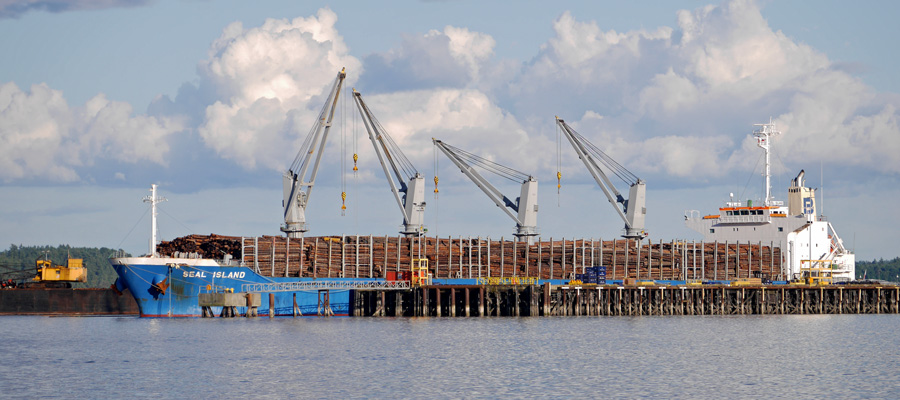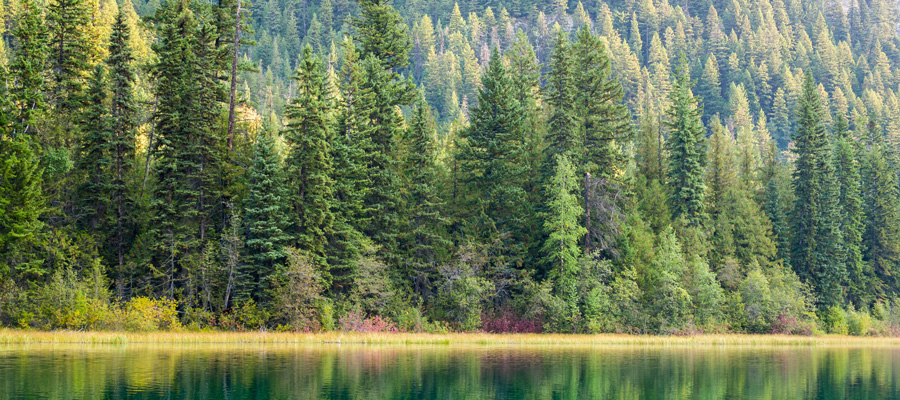More than intentions needed for BC forests

So, our provincial government “intends” to do something about the sorry state of our forests and forest industry.
It intends to protect more old-growth forests.
It intends to see more high-value wood products made in British Columbia.
It intends to make rural communities more secure.
And it intends to do all this while ending practices that have marginalized First Nations for so long.
Premier John Horgan and Forests Minister Katrine Conroy recently outlined these intentions as one protester after another was arrested in the Premier’s Vancouver Island riding where people blockaded logging roads to prevent the logging of remnant old-growth forests in the Fairy Creek area in defiance of a BC Supreme Court ruling.
If this left you feeling unimpressed, skeptical or angry you are not alone.
For decades, it’s been obvious that successive provincial governments encouraged rapid and ultimately ruinous logging.
Incredibly, the Premier says wildfires and insects explain the forest losses. But fires don’t burn in neat squares. Multiple satellite images show that vast swaths of Vancouver Island, Haida Gwaii, the mainland coast, the Chilcotin plateau, the Interior rainforest and more have been heavily logged, pushing old-growth or primary forests to the margins.
If those individuals and communities do not meaningfully include First Nations, we are all collectively in trouble.
Logging such forests must end. If something approaching sustainable forestry is the goal, the government must reassign logging rights to individuals, companies and communities that practice ecologically, socially and economically responsible forestry. And if those individuals and communities do not meaningfully include First Nations, we are all collectively in trouble.
Not long after he unveiled his government’s intentions, three First Nations—the Pacheedaht, Huu-ay-aht and Ditidaht—told Premier Horgan they wanted old-growth logging in portions of the Fairy Creek and Walbran areas deferred for two years. He quickly agreed, even though days earlier he’d supported both the logging and the arrests. The three Vancouver Island nations made it clear they intended to advance their plans to both restore portions of their traditional territories that were badly damaged by previous logging activities and pursue their own logging plans. Robert Dennis, chief councillor for the Huu-ay-aht said:
“Our citizens have a constitutionally protected right to manage and benefit from our lands, waters and resources.”
As the events in or near the Premier’s riding unfold, millions of old-growth and second-growth logs are culled from our forests annually and loaded in raw, unprocessed form onto ships bound for China, Korea and Japan. The resulting loss to Indigenous and non-Indigenous communities is 3,600 foregone wood-processing jobs here in BC.
And what does our government intend to do about it? Nothing.
Its “intentions document” mentions log exports but only commits that companies that ship our future away pay a nominal “fee in lieu of manufacturing”.
Raw logs are the lowest of low value. Wood pellets are marginally better, but barely qualify as a forest product. Total employment in BC’s 14 pellet mills is just 300 jobs. It’s time we called such products what they are: value subtracted.
In 20 years under both Liberal and NDP governments, a staggering amount of forest has been logged and an equally staggering number of jobs lost. Premier Horgan boasts of 50,000 jobs in today’s forest industry. Yet his government’s own labour statistics show there were 91,000 such jobs 20 years ago.
To alter course, the government must:
- End old-growth logging.
- Require that all trees logged in BC are processed in BC.
- Quickly reassign timber to companies that will add value to each log processed.
- Truly elevate First Nations to equal partners in forest conservation and management efforts.
The road to hell is paved with good intentions. Barring such government actions, that is precisely where we’re headed.
Topics: Environment, resources & sustainability, First Nations & Indigenous


